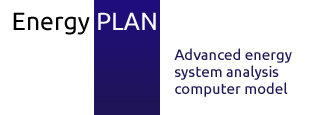AEOLIUS is a power-plant dispatch simulation model developed by the Institute for Industrial Production at Universität Karlsruhe in Germany [1]. To date only one version of the model has been created. The model itself is not sold to external users, instead a stakeholder can pay for the completion of a study, and prices are only available on request of a concrete project.
The key focus of the AEOLIUS model is to identify the impact of higher penetration rates of fluctuating energy carriers (such as wind and PV) on the conventional power-plant systems, especially the need for secured capacities and efficiency losses due to more frequent start-ups. The analysis is carried out using a 15 minute time-step over a maximum of 1 year, and typically on a national energy-system. The model simulates the electricity sector and accounts for all thermal-generation technologies as well as wind, photovoltaic and geothermal power. In addition pumped-hydro and compressed-air energy storage can be simulated. AEOLIUS does not simulate the heat or transport sectors of an energy system. In addition, all costs except investment cost can be accounted for by the AEOLIUS model.
The AEOLIUS model has been used in conjunction with the PERSEUS-CERT energy model to analyse the effects from large-scale integration of wind [2], and it has also been used to analyse the future potential of renewable energy in the EU-15 [3].
References
-
Universität Karlsruhe, Institute for Industrial Production. See also: http://www.iip.kit.edu/65.php, accessed on 18th June 2009.
-
Rosen J, Tietze-Stöckinger I, Rentz O. Model-based analysis of effects from large-scale wind power production. Energy 2007;32(4):575-583.
-
Rosen J. The future role of renewable energy sources in European electricity supply – A model-based analysis for the EU-15, 2008. Institute for Industrial Production: Universitätsverlag Karlsruhe, Karlsruhe, Germany.



